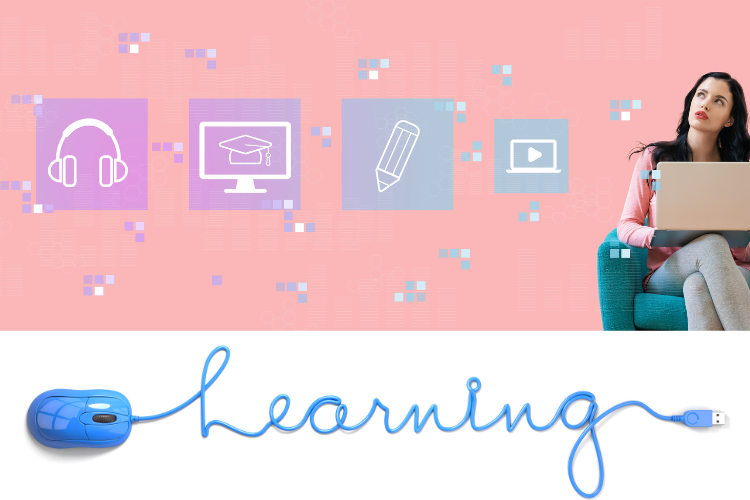In today’s rapidly changing world, one thing is certain: learning never stops. Being informed and knowledgeable has become essential for staying relevant and succeeding in both personal and professional spheres. In this article, we explore why lifelong learning is more important than ever before.
As industries evolve, new technologies emerge, and global dynamics change, it is crucial to continually acquire new knowledge and skills. Lifelong learning enables individuals to adapt and thrive in the face of constant change. It not only enhances personal growth and development but also improves employability and opens up new career opportunities.
Additionally, the process of learning nurtures intellectual curiosity, fosters creativity, and cultivates critical thinking skills. It enables individuals to widen their viewpoints, question assumptions, and delve into novel concepts. Through the ongoing expansion of their knowledge, individuals enhance their adaptability, innovation, and resilience when confronted with challenges.
Whether it is through formal education, online courses, workshops, or self-directed learning, the pursuit of knowledge should be a lifelong journey. Embracing lifelong learning equips individuals with the mindset and skills needed to navigate the ever-evolving landscape of the modern world.
The benefits of continuous learning
In the modern world, the importance of continual learning cannot be overstated. With the rapid pace of technological advancements and the constant evolution of industries, individuals need to continuously update their knowledge and skills to remain relevant. Lifelong learning allows individuals to stay ahead of the curve, adapt to changes, and seize new opportunities.
Furthermore, lifelong learning is vital for personal growth and development. It enables individuals to explore new interests, discover new passions, and expand their horizons. By engaging in lifelong learning, individuals can lead more fulfilling lives and find greater satisfaction in their personal pursuits.
Lifelong learning statistics and trends

Active Mind
Continuous learning offers numerous benefits, both personally and professionally. On a personal level, it enhances cognitive abilities, improves memory retention, and promotes mental well-being. Lifelong learners tend to have sharper minds, better problem-solving skills, and a more positive outlook on life.
From a professional standpoint, lifelong learning is crucial for career advancement and employability. As industries evolve and job requirements change, individuals who continuously update their skills and knowledge are more likely to remain competitive in the job market. Lifelong learners are sought after by employers due to their adaptability, willingness to learn, and ability to bring fresh perspectives to the table.
Developing a learning mindset
The importance of lifelong learning is supported by various statistics and trends. According to a report by the World Economic Forum, the average half-life of a learned skill is now about five years. This means that individuals need to continuously learn and update their skills to keep up with the changing demands of the job market.
Moreover, the surge in online learning platforms has significantly increased the accessibility of lifelong learning. A Coursera survey revealed that 87% of learners experienced career advantages, such as promotions, salary increases, or embarking on a new career, upon finishing online courses. This underscores the beneficial influence of education and training on one’s professional advancement and development.
Strategies for effective lifelong learning
It begins with a genuine curiosity and enthusiasm to explore new subjects, ideas, and perspectives. Embracing a growth mindset, where you believe that intelligence and abilities can be developed through dedication and hard work, is the key to approaching learning with a positive attitude.
Setting clear learning goals and creating a structured learning routine can also help individuals stay motivated and focused on their lifelong learning journey. By breaking down large topics into smaller, manageable chunks, individuals can make steady progress towards their learning goals.
Online resources for lifelong learning
To make the most of learning, it is important to adopt effective learning strategies. One such strategy is active learning, which involves actively engaging with the material through discussions, problem-solving, and hands-on activities. This approach promotes deeper understanding and retention of knowledge.
Another effective strategy is spaced repetition, which involves reviewing and revisiting learned material at regular intervals. This helps reinforce knowledge and prevent forgetting over time. Additionally, seeking feedback from mentors, peers, or instructors can provide valuable insights and guidance for improvement.
The role of technology in lifelong learning
The internet has revolutionised access to lifelong learning resources. There are numerous online platforms, such as Coursera, Udemy, and Khan Academy, that offer a wide range of courses on various subjects. These platforms provide individuals with the flexibility to learn at their own pace and from the comfort of their own homes.
Additionally, podcasts, webinars, and educational YouTube channels are valuable sources of information and insights. These platforms offer a wealth of knowledge from experts in different fields, allowing individuals to expand their knowledge and stay updated on the latest trends and developments.
For the ultimate learning experience, In a world increasingly dominated by screens, some companies such as Startime, champion the power of combining cutting-edge technology with genuine human interaction. From immersive live experiences to seamless face-to-face connections, they’re mastering the art of bridging the digital and physical, creating experiences that resonate deeply.
Education and training for personal and professional growth
Technology plays a crucial role in facilitating lifelong learning. With the advent of online learning platforms, individuals can access educational resources from anywhere in the world. Virtual reality and augmented reality technologies are also being employed to create immersive learning experiences, making learning more engaging and interactive.
Furthermore, artificial intelligence and machine learning algorithms can personalise learning experiences by analysing individual learning patterns and providing tailored recommendations. This adaptive learning approach ensures that individuals receive content that is relevant to their specific needs and preferences.
Lifelong learning in different industries
Lifelong learning is not limited to professional growth alone. It also plays a significant role in personal growth and well-being. By continuously learning and exploring new subjects, individuals can discover new passions, hobbies, and interests. Learning enriches lives, enhances creativity, and fosters personal fulfillment.
Moreover, continuous learning promotes adaptability and resilience, which are essential qualities in today’s rapidly changing world. Individuals who embrace learning are better equipped to navigate challenges, embrace change, and seize new opportunities. Lifelong learners are more likely to thrive and succeed in both their personal and professional lives.
Conclusion: Embracing lifelong learning for a successful future
Lifelong learning is relevant across various industries. In the technology sector, where advancements occur rapidly, individuals must continuously update their skills to remain competitive. Similarly, in healthcare, where new research and treatments emerge, continuous learning is essential for providing quality care.
In creative industries, such as design and marketing, staying updated on the latest trends and techniques is crucial for success. Continuous learning allows individuals in these industries to stay innovative and deliver cutting-edge solutions. In every industry, lifelong learning is a key factor in staying relevant and achieving long-term success.


